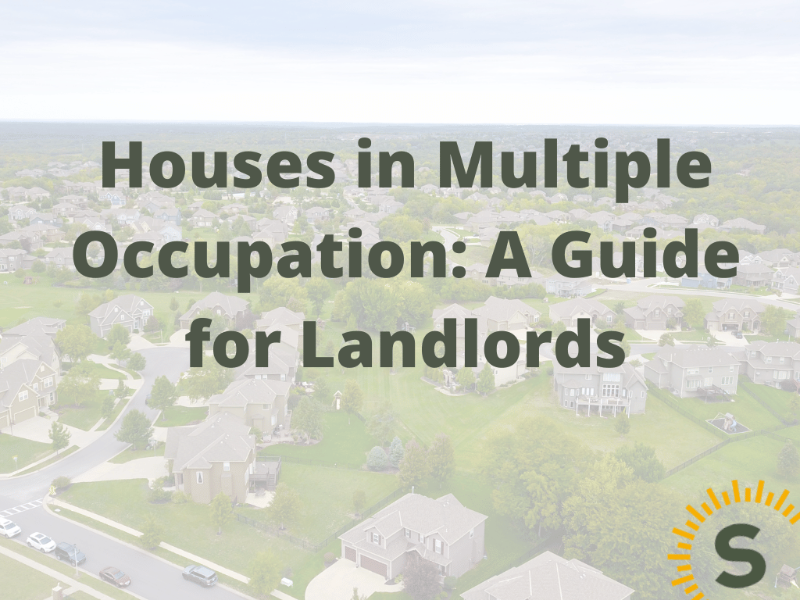
Mortgages for over 60s are available. However, the rules and criteria surrounding lending into retirement differ from a mortgage that you intend to pay off before retiring. In all cases with Mortgage borrowing, it is important that you can verify your income and affordability, regardless of your age. If you can prove you can make the repayments, then lenders will consider your application.
In this insight, we will consider the lending rules around mortgages for over 60s and advise on how to proceed with your borrowing needs.
Mortgages for over 60s have been altered since the Mortgage Market Review (MMR) was introduced in 2014 by the FCA. MMR updated mortgage regulation in the UK with an aim to improve affordability and sustainability of mortgage lending. It required lenders to take more care in assessing borrower's ability to make repayments. This meant more affordability checks for all borrowers.
The MMR changes meant that any lender considering mortgages for clients that stretched into retirement would also need to verify their applicant’s retirement income. Previously, the applicant chose their own retirement age without consideration for whether it was sustainable or not. For example, working until 75 in a labour intense job might not be sustainable.
The MMR changes meant all new mortgages for the over 60s were impacted. That could be due to affordability issues, lack of income proof, or where the chosen method to borrow may not be the right outcome for the applicant to consider.
When you approach a Mortgage lender, one of the questions you will be asked is when do you intend to retire? The lender will use the age you provide to determine what maximum term they can consider using your income pre-retirement. For example, income from employment.
If you intend to borrow into retirement, after your stated retirement age, you will only be able to borrow money based on your retirement income. For example, pension income.
You will need to provide evidence. If you cannot, the lender will not consider the income allowable for the application.
Once the Mortgage term goes beyond your retirement age, the case is known as Lending into retirement.
Some lenders set their own age when lending into retirement rules must be followed. It is usually the same age as your state pension age. However, they will take the earliest of either your intended retirement age or your state retirement age. This will determine how your mortgage application is assessed.
Once you decide you are looking to raise or extend your mortgage into retirement, you can speak to a Mortgage adviser. The Adviser will agree a Mortgage Promise for you. This confirms the amount you will be able to borrow, over the maximum term, based on your retirement income.
If you are moving home, you will then be able to put an offer in on a property and follow the usual homebuyer steps until completion.
If you are raising money from your property for another reason, depending on whether there is conveyancing work that needs to be completed, the Mortgage adviser may be able to agree the further advance on the same day. In some cases, it is possible to be paid on the same day also.
We have considered some scenarios below why you may need to get a mortgage that lends into retirement and how to get started.
If you are planning on raising a Mortgage on a new property you are buying, you will be able to apply for a standard mortgage. To do this, you will need to verify your income beyond retirement and could look to borrow up to a maximum age of 85.
If you own your home outright, you can raise a new mortgage following the same affordability rules as moving home. You will need to verify your retirement income and can only borrow up to the age of 85.
However, as you do not have an existing mortgage on the property, you will be required to do some legal work (conveyancing) to put this Mortgage in place. This conveyancing work can cost up to £1,000. Due to these additional costs, It might be more suitable to look at a personal loan, which could work out cheaper when you factor in the upfront costs.
If you do have a Mortgage, you can consider a further advance – that is where you open a second sub-account on your Mortgage and you pay it back monthly as part of your normal repayments. Normal lending into retirement rules will apply.
The other option to consider is a Remortgage. A Remortgage is where you move your Mortgage to another lender and as part of this, you may be able to borrow extra funds at the same time. Lending into retirement rules will apply, but you will be able to review Mortgage options from other lenders than your existing one if you choose to Remortgage. This might be a good solution if your current lender does not offer Mortgages for those over 60, or lending into retirement.
If you have not paid off your Mortgage but want to retire, you may not be able to afford to maintain your current repayments based on your retirement income. However, it may be possible to stretch your Mortgage term further into retirement to help lower your repayments. You will pay more interest in the long term, but it will allow you to retire and stay in your home.
Whether this is achievable or not will depend on the amount that remains on your Mortgage and your retirement income.
It is not normally an acceptable reason to borrow money on a Mortgage to put into a pension or maintain lifestyle costs as you will be paying interest that might offset any benefits. However, you can consider Equity Release. With Equity Release, you do not need to pay back your borrowing until when you pass away. Upon death, the money you owe will be taken from your estate as either a percentage value of your home or a loan amount plus interest.
Lenders will assess your affordability for your over 60s mortgage based on what income evidence you can prove.
Acceptable retirement income includes:
To evidence this income often only 3 months worth of Bank statements or annual benefit income statements would be required.
If you haven’t yet retired, you will be able to provide your pension estimation statement. It needs to confirm your expected retirement age, estimated retirement pension pot, and estimated retirement income.
Age does not play a role in calculating what Mortgage rate you are eligible for. You may find that raising a mortgage later in life is not as expensive as you thought it would be. However, the costs do vary from lender to lender and depend on what type of Mortgage you agree to.
Generally, for raising a standard Mortgage, the maximum age of the oldest applicant on a Mortgage can be up to 85. There are other options you consider if this is not suitable.
Most people think that the debt will be written off upon death. However, that is not the case.
The lender will either need to be paid directly from the estate, or from family members. If they cannot raise the money a house sale may be required. This can add additional stress to what is already a stressful situation.
It is a good idea to review your Protection insurance options available to you if you do proceed with lending into retirement. It is possible to insure yourself for an amount that would clear the debt upon death so that your family does not need to worry.
It is possible to get a mortgage if you're retired, but you will need to be able to prove you can afford it. You can do that by evidencing your retirement income, such as pensions. Many lenders will consider lending up to age 75.
As lending into retirement is less common, if you're looking for mortgages for over 60s, it is a good idea to speak with a mortgage adviser. Mortgage advisers have access to smaller lenders who will be more likely to accept your application. Complete the Sunny Avenue Fact Find for mortgages to get started. We use the answer you provide to find the most suitable adviser. The adviser then contacts you for a no-obligation conversation on how they can help.

Stuart is an expert in Property, Money, Banking & Finance, having worked in retail and investment banking for 10+ years before founding Sunny Avenue. Stuart has spent his career studying finance. He holds qualifications in financial studies, mortgage advice & practice, banking operations, dealing & financial markets, derivatives, securities & investments.
 No minimum
No minimum  Newcastle-under-Lyme, Staffordshire
Newcastle-under-Lyme, Staffordshire Free Consultations
Free Consultations
 No minimum
No minimum  No obligation consultation
No obligation consultation
 No minimum
No minimum  No obligation consultation
No obligation consultation
 No minimum
No minimum  Free Consultations
Free Consultations
 No minimum
No minimum  No obligation consultation
No obligation consultation
 No minimum
No minimum  No obligation consultation
No obligation consultation
 No minimum
No minimum  Free Consultations
Free Consultations
 No minimum
No minimum  Free Consultations
Free Consultations
 No minimum
No minimum  Coatbridge, Lanarkshire
Coatbridge, Lanarkshire Initial or Ongoing Consultation Fees
Initial or Ongoing Consultation Fees
 No minimum
No minimum  Initial or Ongoing Consultation Fees
Initial or Ongoing Consultation Fees
 £21,000 +
£21,000 +  Initial fee free consultation
Initial fee free consultation
 London, Greater London
London, Greater London No obligation consultation
No obligation consultation
 No minimum
No minimum  No obligation consultation
No obligation consultation
 No minimum
No minimum  Initial fee free consultation
Initial fee free consultation
 No minimum
No minimum  No obligation consultation
No obligation consultation
 No minimum
No minimum  No obligation consultation
No obligation consultation
 No minimum
No minimum  No obligation consultation
No obligation consultation
 No minimum
No minimum  Initial fee free consultation
Initial fee free consultation
 No minimum
No minimum  No obligation consultation
No obligation consultation
 No minimum
No minimum  Initial fee free consultation
Initial fee free consultation
 £101,000+
£101,000+  Bishop's Stortford, Hertfordshire
Bishop's Stortford, Hertfordshire No obligation consultation
No obligation consultation
 No minimum
No minimum  Derry / Londonderry, County Derry / Londonderry
Derry / Londonderry, County Derry / Londonderry Free Consultations
Free Consultations
 No minimum
No minimum  Stockton-on-Tees, County Durham
Stockton-on-Tees, County Durham Free Consultations
Free Consultations
 No minimum
No minimum  Initial fee free consultation
Initial fee free consultation
 No minimum
No minimum  Cheltenham, Gloucestershire
Cheltenham, Gloucestershire No obligation consultation
No obligation consultation





Our website offers information about financial products such as investing, savings, equity release, mortgages, and insurance. None of the information on Sunny Avenue constitutes personal advice. Sunny Avenue does not offer any of these services directly and we only act as a directory service to connect you to the experts. If you require further information to proceed you will need to request advice, for example from the financial advisers listed. If you decide to invest, read the important investment notes provided first, decide how to proceed on your own basis, and remember that investments can go up and down in value, so you could get back less than you put in.
Think carefully before securing debts against your home. A mortgage is a loan secured on your home, which you could lose if you do not keep up your mortgage payments. Check that any mortgage will meet your needs if you want to move or sell your home or you want your family to inherit it. If you are in any doubt, seek independent advice.